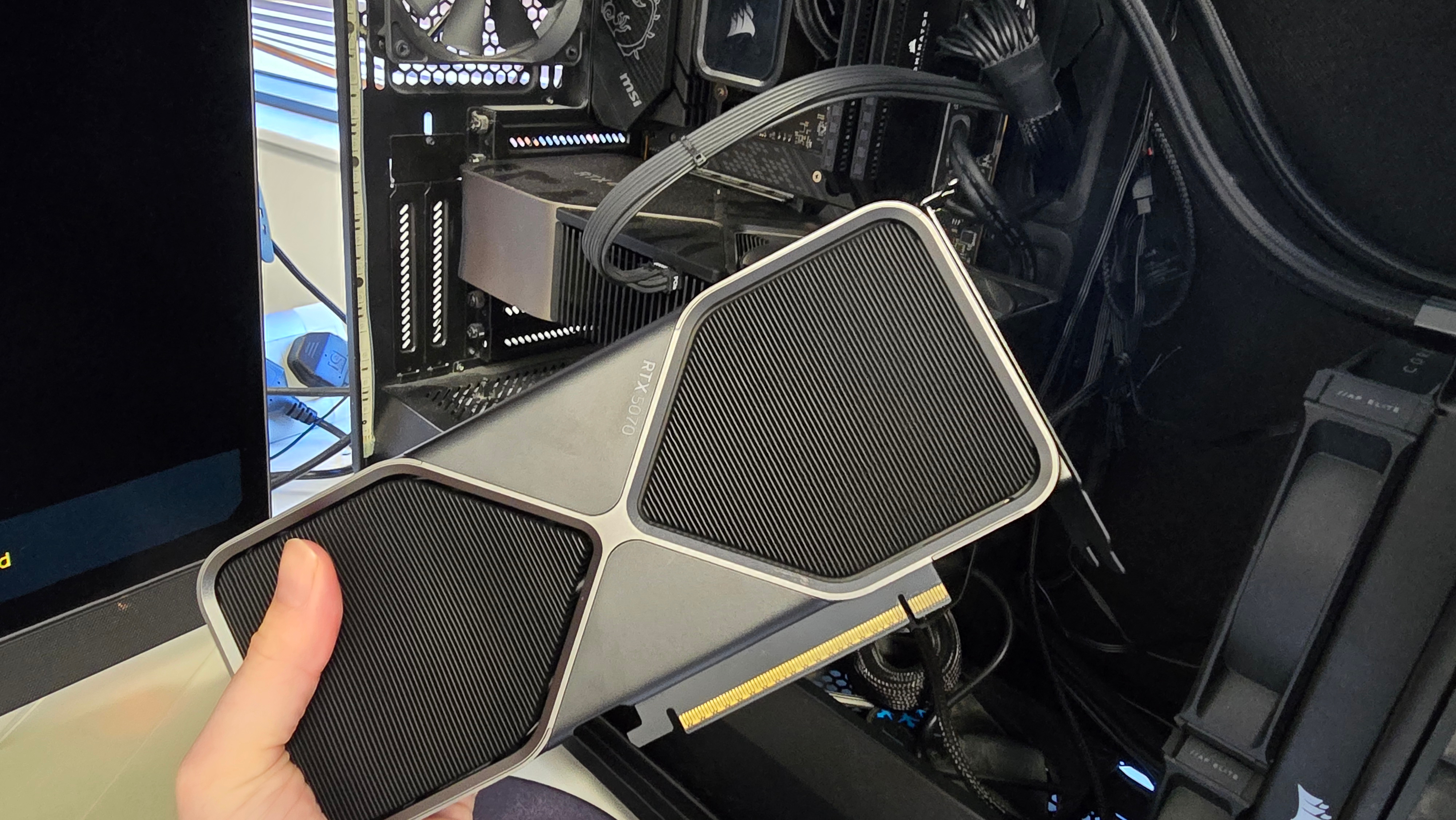Nvidia’s gaming GPUs could still get pricier despite tariffs truce, new report claims – here’s why
More bad news for graphics card hunters? It looks that way

Sign up for breaking news, reviews, opinion, top tech deals, and more.
You are now subscribed
Your newsletter sign-up was successful
- Rumors from supply chain suggest Nvidia’s hiked pricing for GeForce GPUs
- Blackwell gaming GPUs could be set for 5% to 10% price increases
- Trump’s new deal with China over tariffs has just happened, but the rumored hikes could already be in the pipeline
A gloomy cloud of potential price hikes is hovering over Nvidia’s GeForce graphics cards, despite the news that there’s been a climbdown with Trump’s tariffs, which have been a major worry regarding the pricing of those (and other) GPUs.
Tom’s Hardware highlighted a report from DigiTimes (the Taiwanese site – so bear in mind translation issues from Chinese) which contends that Nvidia recently raised its prices for “almost all of its products,” with partners hiking their own prices simultaneously.
The report claims to have info from the supply chain over in Asia that indicates this is the case, and that Nvidia is facing “multiple crises” in terms of its overall business, with gaming graphics cards (GeForce models) affected as well as AI products.
DigiTimes gives an example of an Asus RTX 5090 model which has just risen in price by 10%, while some of Nvidia’s other graphics cards are facing price hikes of between 5% to 10%. The serious business of AI GPUs is hit worse, with up to 15% price increases, we’re told (obviously sprinkle plenty of seasoning with all this).
The causes of this trouble include the direct ban on AI GPUs being sold to China (which includes the RTX 5090, even though that’s a top-end consumer board, it’s also great for AI tasks), as well as the new trade tariffs of recent times. On top of that, another point to bear in mind is that Nvidia has moved the production of Blackwell (RTX 5000) chips to TSMC’s US factory, which has also inflated costs.
Analysis: Uncertain and turbulent times

That’s an unfortunate combination of factors, although as noted at the outset, there has just been a development in terms of Trump’s tariffs imposed on China (and vice versa) in the form of a 90-day pause (and reduction by 115% for imports in both markets).
However, if the above chatter from the supply chain is true, these price hikes are already in the system. In other words, they’ll still potentially be coming through to increase prices on gaming graphics cards anyway. There’s still a lot of uncertainty around where these trade wars are going in the near future, too, despite this undoubted positive bit of relief to the situation.
Sign up for breaking news, reviews, opinion, top tech deals, and more.
Besides, the tariffs aren’t the only element in this pricing equation, because there’s also the cost of Nvidia rejigging its production plans for Blackwell GPUs. More broadly, Nvidia’s graphics cards remain difficult to find – at least anywhere near their recommended prices – and it doesn’t feel like that situation is going to turn around anytime soon.
We do have some hope for the future, though. When production disruption settles, and if the trade tariffs are addressed with longer-term positive policies to resolve the battle between the US and China, we should start to see GPU pricing improve. There’s still some way to go before I start feeling more optimistic about this, though.
Meanwhile, AMD will hopefully attack with competitive pricing when its rumored RX 9060 XT graphics cards pitch up in (theoretically) just over a week. However, there’s speculation that Team Red may not go as low as I’d ideally like with those RDNA 4 GPUs. What with Nvidia’s current pricing, there isn’t a lot of pressure to drive AMD to be thinking about more affordable price tags itself, of course. (We’re not short of rumors to that effect, sadly – but we’d take them with a fistful of salt, to be fair).
You might also like...
Darren is a freelancer writing news and features for TechRadar (and occasionally T3) across a broad range of computing topics including CPUs, GPUs, various other hardware, VPNs, antivirus and more. He has written about tech for the best part of three decades, and writes books in his spare time (his debut novel - 'I Know What You Did Last Supper' - was published by Hachette UK in 2013).
You must confirm your public display name before commenting
Please logout and then login again, you will then be prompted to enter your display name.